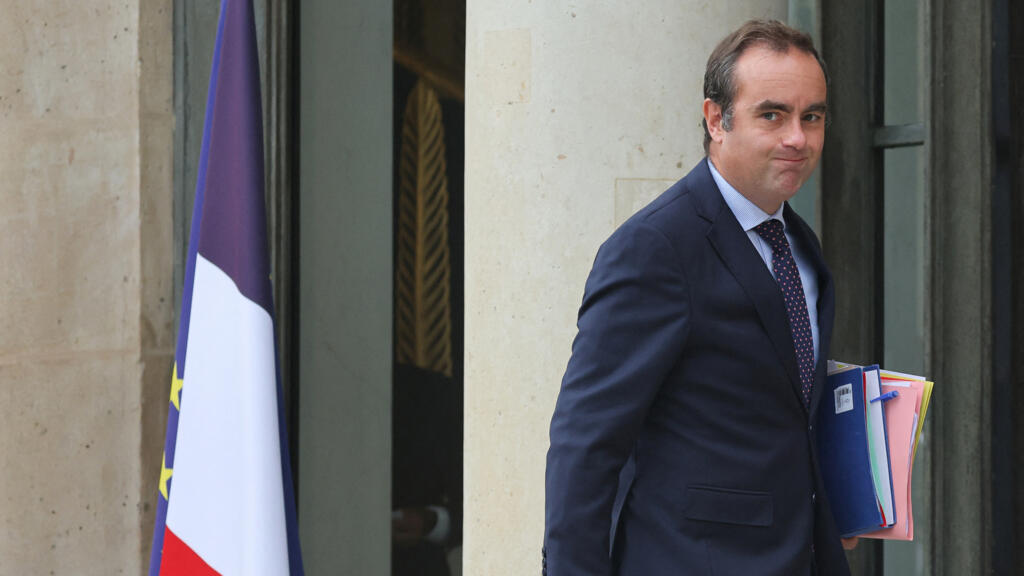Why did Sébastien Lecornu resign as French Prime Minister: Political Crisis Explained

Sébastien Lecornu arrives at the Elysée Palace in Paris on 4 September 2025. Image Credit: LUDOVIC MARIN/AFP
Sébastien Lecornu, appointed Prime Minister of France on September 9, 2025, resigned on October 6, after serving just 27 days in office. This unprecedentedly short tenure has plunged the French government into a crisis, following widespread criticism of his cabinet appointments and lack of parliamentary support. Lecornu’s departure underscores the deep fractures within the ruling coalition and growing public dissatisfaction with political leadership.
Why Did Lecornu Step Down?
The resignation was triggered by multiple factors, primarily political instability and mounting opposition pressure. Lecornu’s newly appointed cabinet included loyal Macronists and figures from Les Républicains (LR), but critics argued that it failed to signal the promised “break” from previous administrations. The return of Bruno Le Maire to government, now heading the Armed Forces, was seen as provocative by opposition leaders, including Olivier Faure of the Socialist Party, who called it “a provocation.”
The National Rally (RN) also reacted strongly. Leaders like Jordan Bardella and Marine Le Pen demanded either early legislative elections or the dissolution of the National Assembly, criticizing Lecornu’s government as illegitimate. Even within LR, there was unease, with Bruno Retailleau convening an emergency strategic meeting to assess whether his party should continue participating. Xavier Bertrand, president of Hauts-de-France, stressed national interest over party loyalty, highlighting the severity of the political impasse.
Economic Implications of Lecornu’s Resignation
Lecornu’s resignation had immediate economic repercussions. The Paris stock market dropped over 2% in early trading, reflecting investor uncertainty about France’s governance. Major financial institutions such as BNP Paribas, Crédit Agricole, and Société Générale suffered significant losses, while government bond yields rose. Analysts warn that prolonged political instability could hamper France’s economic recovery, deter foreign investment, and complicate efforts to pass critical legislation, including the national budget.
READ ALSO
Ike Turner Jr. dies at 67: What to know about the Grammy winner and son of Ike and Tina Turner
Political Reactions and Parliamentary Dynamics
The resignation sparked strong reactions across the political spectrum. Socialist Party leader Olivier Faure declared the Lecornu government “weak” and signaled a likely censure unless key reforms, such as revisiting the pension law, were addressed. Jean-Luc Mélenchon of La France Insoumise criticized the cabinet as “a procession of ghosts,” arguing it perpetuated failed policies of the past. Meanwhile, Les Républicains remain divided, with debates over whether their participation strengthens or weakens Macron’s government.
Former Prime Minister François Bayrou emphasized the need for unity, warning that continued political fragmentation could paralyze the government and leave French citizens without clear leadership. Political analysts suggest that this crisis highlights a structural vulnerability in France’s Fifth Republic: the President’s reliance on parliamentary coalitions that may not reflect broad public support.
What Lecornu’s Resignation Means for France
Lecornu’s departure creates a power vacuum at a critical juncture. President Emmanuel Macron must decide whether to appoint a successor or pursue early elections. This uncertainty has intensified calls from opposition parties and public commentators for a return to the ballot box.
The resignation also underscores the growing polarization in French politics. Opposition parties now have increased leverage to shape government policy, while Macron’s party must navigate internal divisions to maintain authority. Experts warn that without swift compromise, France risks a prolonged period of instability, affecting not just politics but also economic and social policymaking.
In short, Lecornu’s resignation is more than a personnel change, it signals a broader crisis in French governance, reflecting both the volatility of the current political climate and the urgent need for coalition-building to stabilize the nation.
FAQ
Q1: Who is Sébastien Lecornu?
A: Sébastien Lecornu is a French politician who briefly served as Prime Minister of France from September 9 to October 6, 2025. He has previously held positions such as Minister of the Armed Forces and Minister for Local Authorities.
Q2: Why did Sébastien Lecornu resign?
A: Lecornu resigned due to political instability, backlash over cabinet appointments, lack of support from opposition parties, and internal coalition divisions.
Q3: How long was Lecornu Prime Minister?
A: Lecornu served for just 27 days, making him the shortest-serving Prime Minister in the Fifth Republic of France.
Q4: What parties opposed Lecornu’s government?
A: The Socialist Party (PS), National Rally (RN), and parts of Les Républicains (LR) criticized the government, with some threatening censure or withdrawal from the cabinet.
Q5: What are the consequences of Lecornu’s resignation?
A: The resignation has triggered a political crisis, raised uncertainty about governance, impacted the stock market, and could lead to early elections.
Q6: Who could replace Lecornu as Prime Minister?
A: President Emmanuel Macron may appoint a new Prime Minister from the ruling coalition or call for early legislative elections, but no official successor has been named.
Q7: How did the public and media react?
A: Media coverage emphasizes France’s political fragmentation, while opposition parties and economic analysts warn of instability and loss of public trust.
Q8: How will Lecornu’s resignation affect legislation?
A: With the government in flux, critical bills, including pension reforms and budget approval, may face delays, increasing uncertainty about future policymaking.

